The US Cutaneous Oncodermatology Management (USCOM) project aims to improve cancer patients’ and survivors’ quality of life by offering tools for preventing and managing cancer treatment-related cutaneous toxicities.
The USCOM panel of clinicians who treat cancer treatment-related cutaneous CAEs developed, discussed, and reached a consensus on statements and an evidence-based algorithm supporting prevention, treatment, and maintenance using OTC skincare measures. The algorithm focuses on skincare measures to prevent and treat cutaneous toxicities using prevention measures and a skincare regimen involving hygiene, moisturization, sun protection, and camouflage products. The algorithm aims to improve patient outcomes and sought to determine the best approach for oncology skincare programs for all stakeholders in the US health care setting. These include medical oncologists, family practice/internal medicine physicians, dermatologists, oncology nurses, advanced practice providers (APPs), nurse practitioners (NP), physician assistants (PA), and pharmacists.
SPEAKERS
Mario Lacouture, MD, FAAD
Director
Onco-Dermatology Program
Memorial Sloan Kettering Cancer Center
Professor, Dermatology
Weill Cornell Medicine
New York, New York
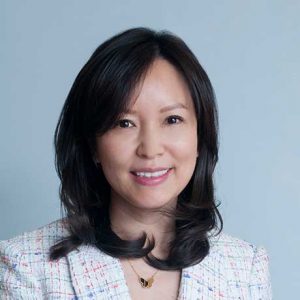 Alice Ho, MD, MBA
Alice Ho, MD, MBA
Radiation Oncologist
Massachusetts General Hospital
Associate Professor
Harvard Medical School
Director of Breast Radiation Oncology
Boston, Massachusetts
HOSTED BY

IN PARTNERSHIP WITH
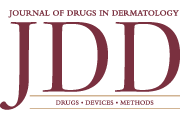
SUPPORTED BY

Watch Video
Join us for a special two-part webinar on timely dermatology topics that include Q&A!
SKIN CARE IN SKIN OF COLOR
Mona Gohara, MD
Associate Clinical Professor
Department of Dermatology
Yale School Of Medicine
TREATING ACNE IN LGBTQ+ PATIENTS
Angelo Landriscina, MD
Site Director for Dermatology
Mount Sinai Doctors-Brooklyn Heights
Brooklyn, NY
Supported by La Roche-Posay

Click here for bioWatch Video
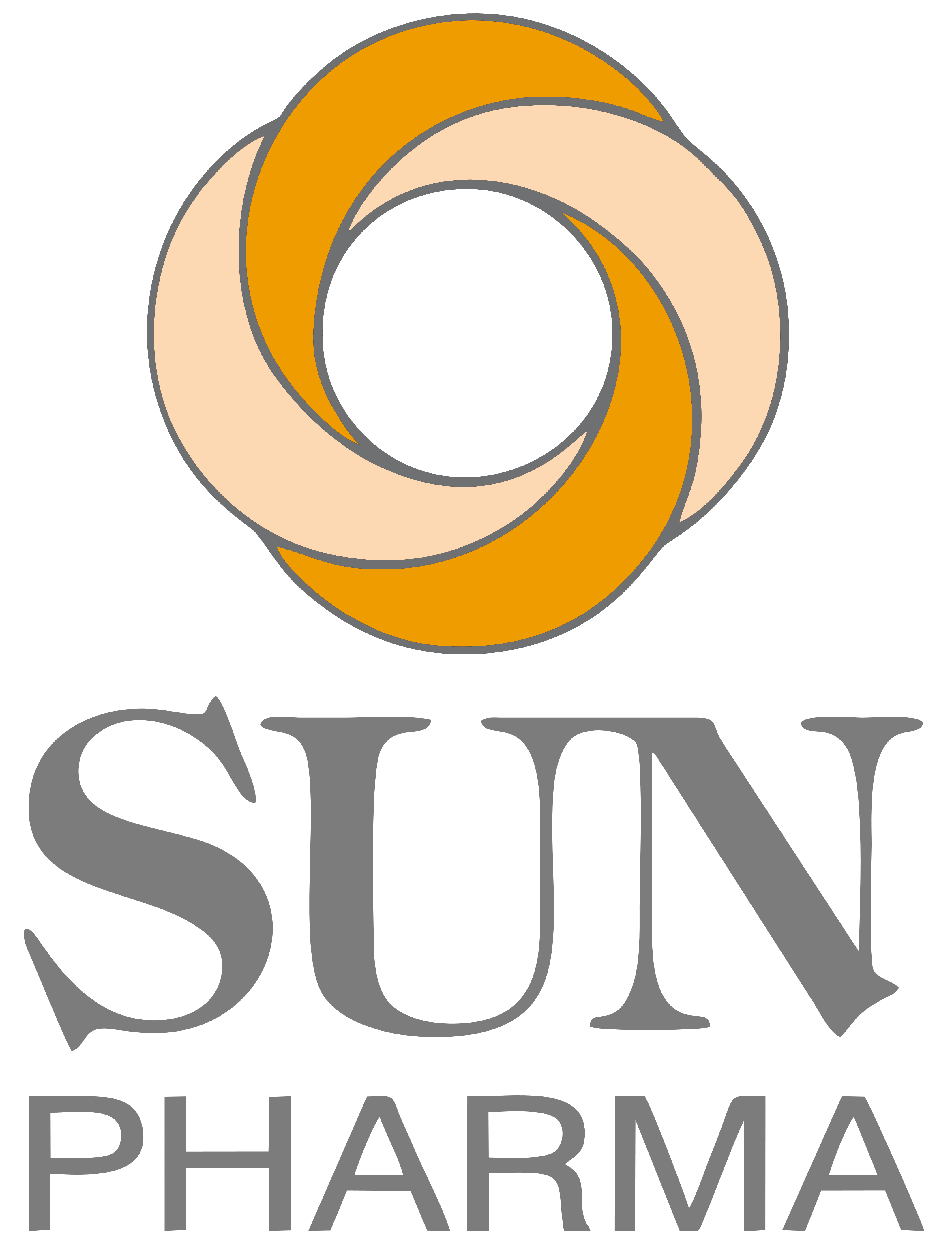 Sponsored by Sun Pharmaceuticals
Sponsored by Sun Pharmaceuticals
This promotional event is sponsored by Sun Pharmaceutical Industries, Inc. The speaker is a paid consultant presenting on behalf of Sun Pharmaceutical Industries, Inc
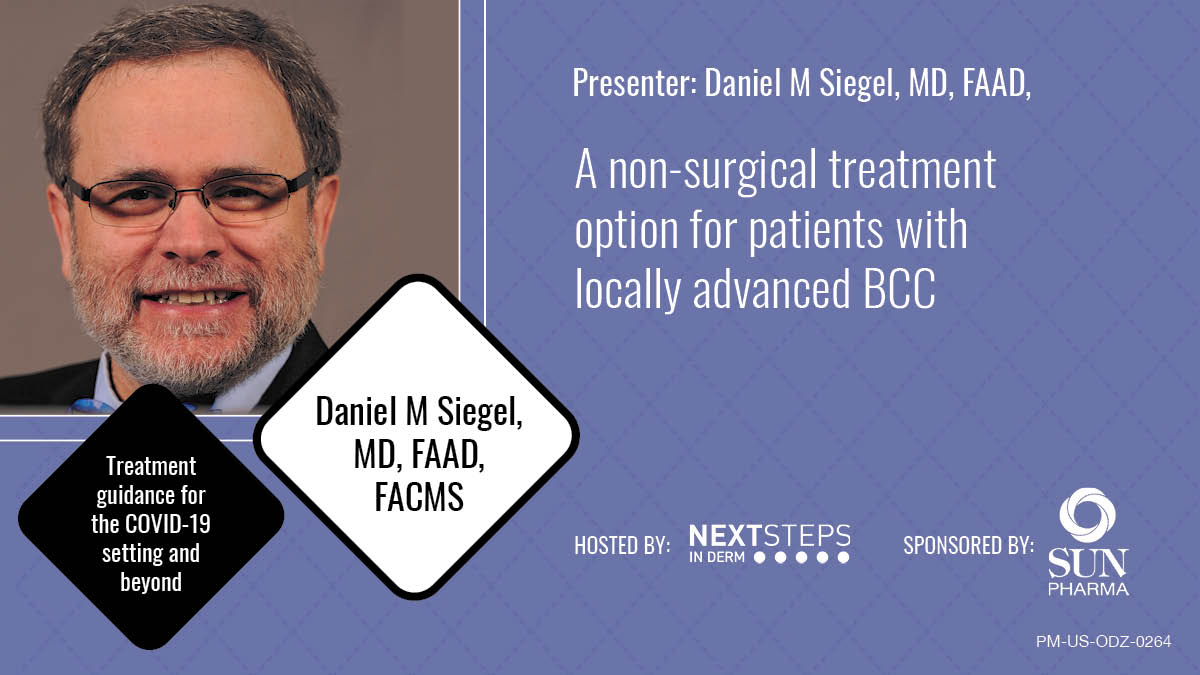
TREATMENT GUIDANCE FOR THE COVID-19 SETTING AND BEYOND
Come learn about ODOMZO, a non-surgical option for patients with locally advanced basal cell carcinoma, and have a discussion with Dr. Daniel M. Siegel, MD, FAAD, FACMS. This program will discuss the use of ODOMZO in the current COVID-19 setting, and will provide useful information about treating laBCC lesions that are located in sensitive areas, when multiple lesions are present, or when small lesions recur in the same location.
ODOMZO (sonidegib) is indicated for the treatment of adult patients with locally advanced basal cell carcinoma (BCC) that has recurred following surgery or radiation therapy, or those who are not candidates for surgery or radiation therapy.
Daniel M. Siegel, MD, FAAD, FACMS
Clinical Professor of Dermatology
State University of New York
Health Sciences Center at Brooklyn
Brooklyn, NY
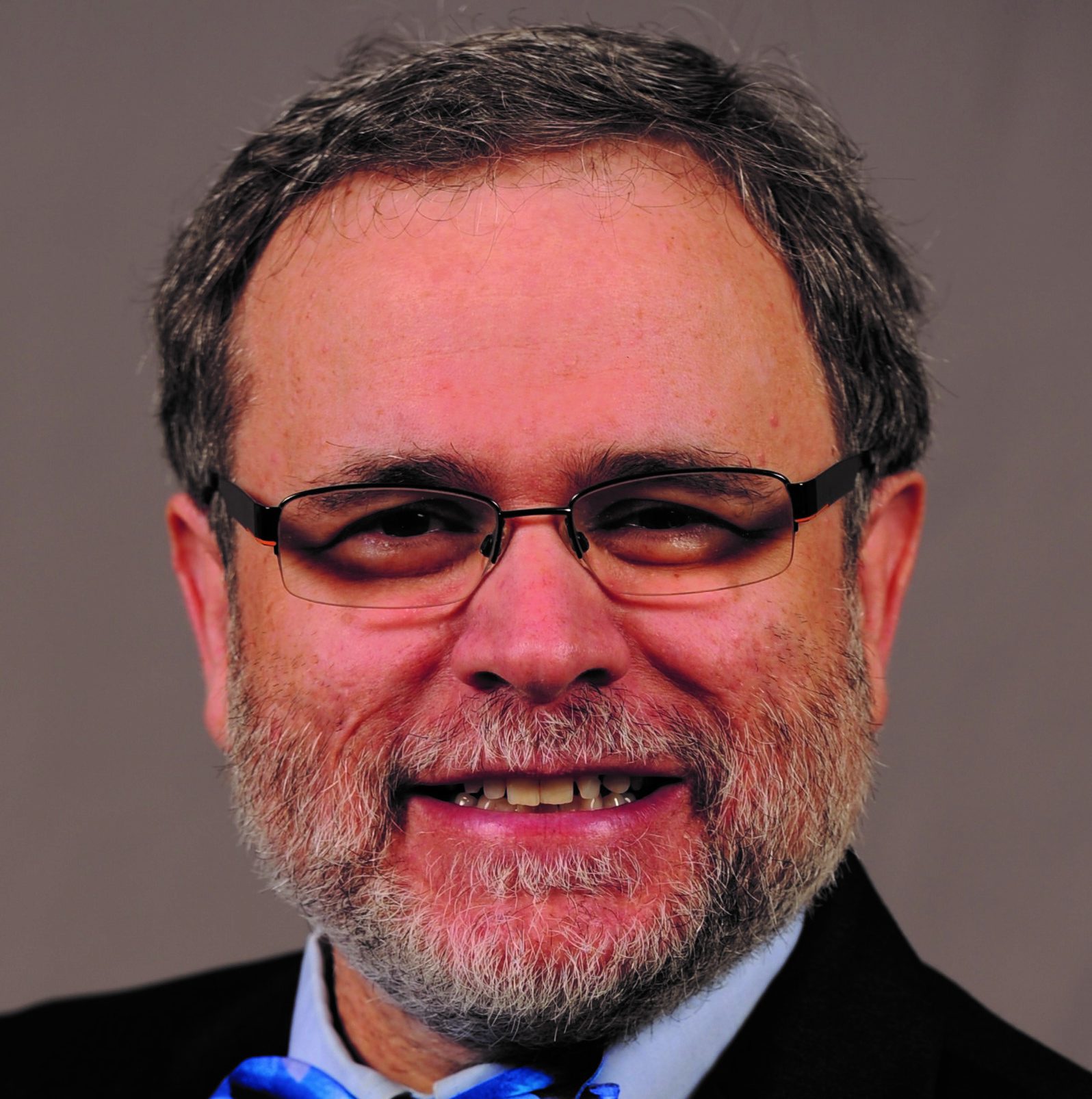
Dr. Daniel Siegel is Clinical Professor of Dermatology at the State University of New York (SUNY) Health Sciences Center at Brooklyn in New York. He is also a
dermatologist in private practice at Long Island Skin Cancer and Dermatologic Surgery in Smithtown, New York. Dr. Siegel is board certified in dermatology and laser surgery, and is a certified professional coder in dermatology. He was head of the Division of Dermatologic Surgery at SUNY Stony Brook for 12 years. Dr Siegel has authored more than 100 articles in peer-reviewed journals, as well as numerous books and book chapters. He currently serves as Editor of eMedicine Dermatology, sits on the editorial board of Ostomy Wound Management, and is a reviewer for numerous journals. Dr. Siegel is a Fellow and Past President of the American Academy of Dermatology. He is also a Fellow of the American College of Mohs Surgery, the American Society for Dermatologic Surgery, and the American Society for Mohs Surgery. A five-time recipient of the American Academy of Dermatology’s Presidential Citation, Dr Siegel has been listed in Castle Connolly’s “Top Long Island Doctors” for the past 9 years.
Watch Video
Supported by La Roche-Posay and SkinCeuticals


Active Ingredients play a critical role in the efficacy and safety of Cosmeceuticals. Join Vivian Bucay, MD, as she shares information on cosmeceutical ingredients. This presentation will include information on the mechanisms of action and benefits for various skin conditions and concerns for ingredients found in SkinCeuticals and La Roche-Posay products.
Vivian Bucay, MD, FAAD
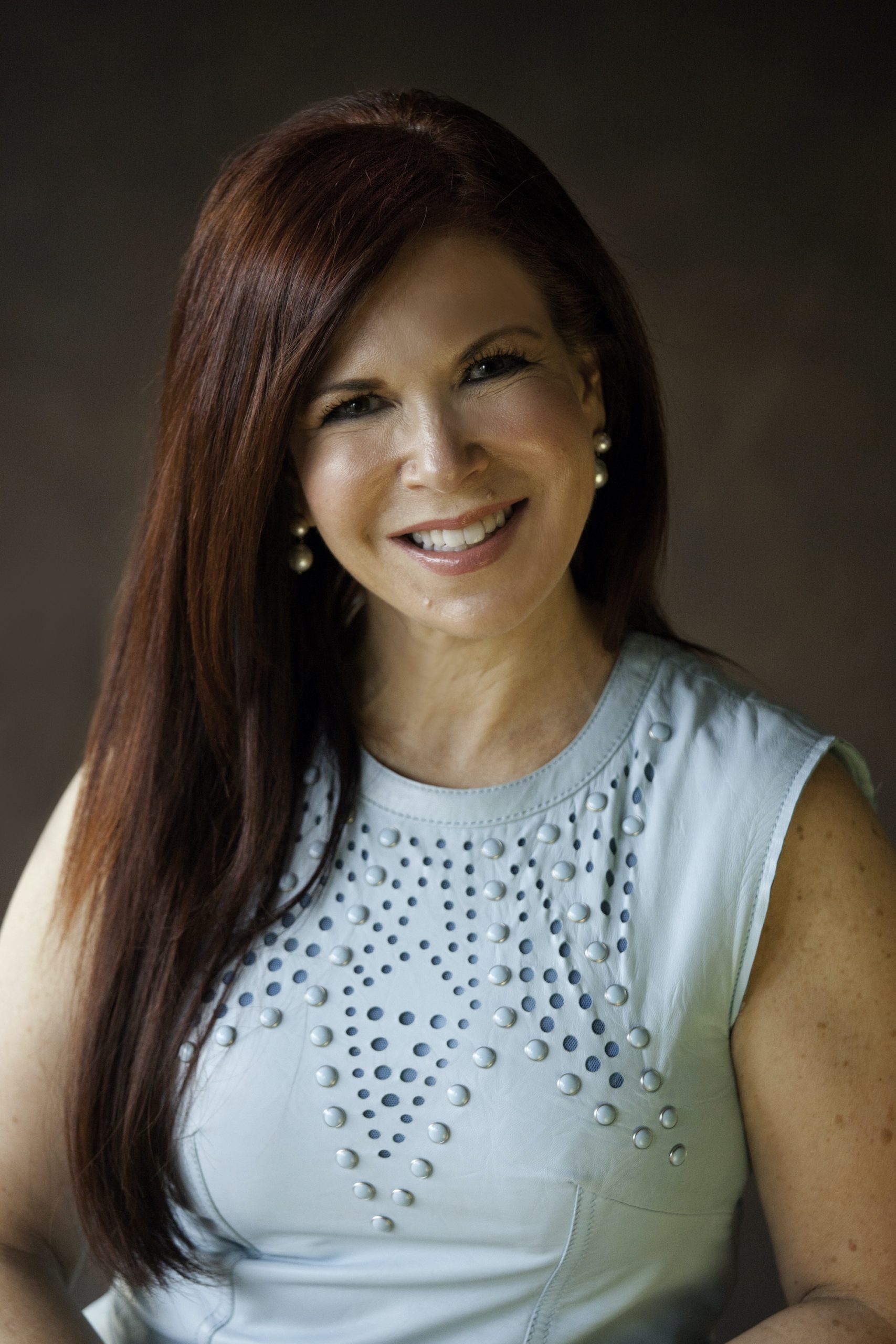 San Antonio is home to Dr. Vivian Bucay and her husband, cardiologist Moises Bucay, and their three daughters. Recognized nationally and internationally for her expertise in her combination approach in minimally invasive facial rejuvenation, Dr. Bucay is considered to be one of the pre-eminent dermatologists in the country. Her credentials span a wide scope of biomedical research, patient care, and medical education.
San Antonio is home to Dr. Vivian Bucay and her husband, cardiologist Moises Bucay, and their three daughters. Recognized nationally and internationally for her expertise in her combination approach in minimally invasive facial rejuvenation, Dr. Bucay is considered to be one of the pre-eminent dermatologists in the country. Her credentials span a wide scope of biomedical research, patient care, and medical education.
Licensed in both the United States and Mexico, Dr. Bucay is a Phi Beta Kappa graduate of the Johns Hopkins University, completing her undergraduate studies in 1983 while serving as a research assistant at the Johns Hopkins Oncology Center. She earned her MD in 1987 from Houston-based Baylor College of Medicine. After completing an internship in pediatrics in 1988, Dr. Bucay began a residency in dermatology at The University of Miami School of Medicine, which she then completed at the Baylor College of Medicine in 1991.
In private practice since 1991, Dr. Bucay is part of the volunteer faculty of the UT Health Science Center San Antonio as a Clinical Assistant Professor in the Department of Physician Assistant Studies. Dr. Bucay serves as faculty on several continuing medical educational initiatives in the USA. She is sought for speaking engagements and has been featured as a keynote speaker across the globe on a wide scope of topics ranging from innovations in facial aesthetics to evidence-based skin care to cancer survival.
A personal battle with stage 4 melanoma, has enabled Dr. Bucay to connect with her patients in a unique way. Dr. Bucay’s patient empathy is borne of the mental, social, and physical challenges she experienced as a patient in her fight with cancer, a journey that began in May 2006. Cancer-free since August 2007, her victory has been an inspiration to her patients. Her goal continues to be to thrive, not just to survive.
Passionate about skin wellness, Dr. Bucay has been featured as a skin expert in several publications, including Allure, Cosmetic Surgery Times, Elle, More, Shape, Prevention, New Beauty, Men’s Health and Good Housekeeping. Since 2004, Dr. Bucay has been recognized yearly as a Texas Super Doctor by Texas Monthly Magazine. Dr. Bucay is a Distinguished Physician Member of the Liquid Face Lift Association and is the author or co-author of many publications and is involved in several studies evaluating emerging cosmeceuticals.
Deeply committed to her family and patients, when time allows, Dr. Bucay’s interests include travel and art, and she is proud to support San Antonio’s talented artists. Most of all, she is grateful for the love and support of her amazing family and wonderful friends.
Watch Video
Supported by La Roche-Posay

This program will provide an overview of AD including prevalence, severity, and disease course/progression, succinct summaries of pathophysiology and medical management, and discussion of epidermal barrier dysfunction and skin microbiome shifting associated with AD. Additional emphasis is placed on adjunctive topical skin barrier approaches that may prolong disease-free remissions. Results from a panel of dermatologists queried about adjunctive approaches to AD, using a modified-Delphi approach, are also discussed.
FACULTY
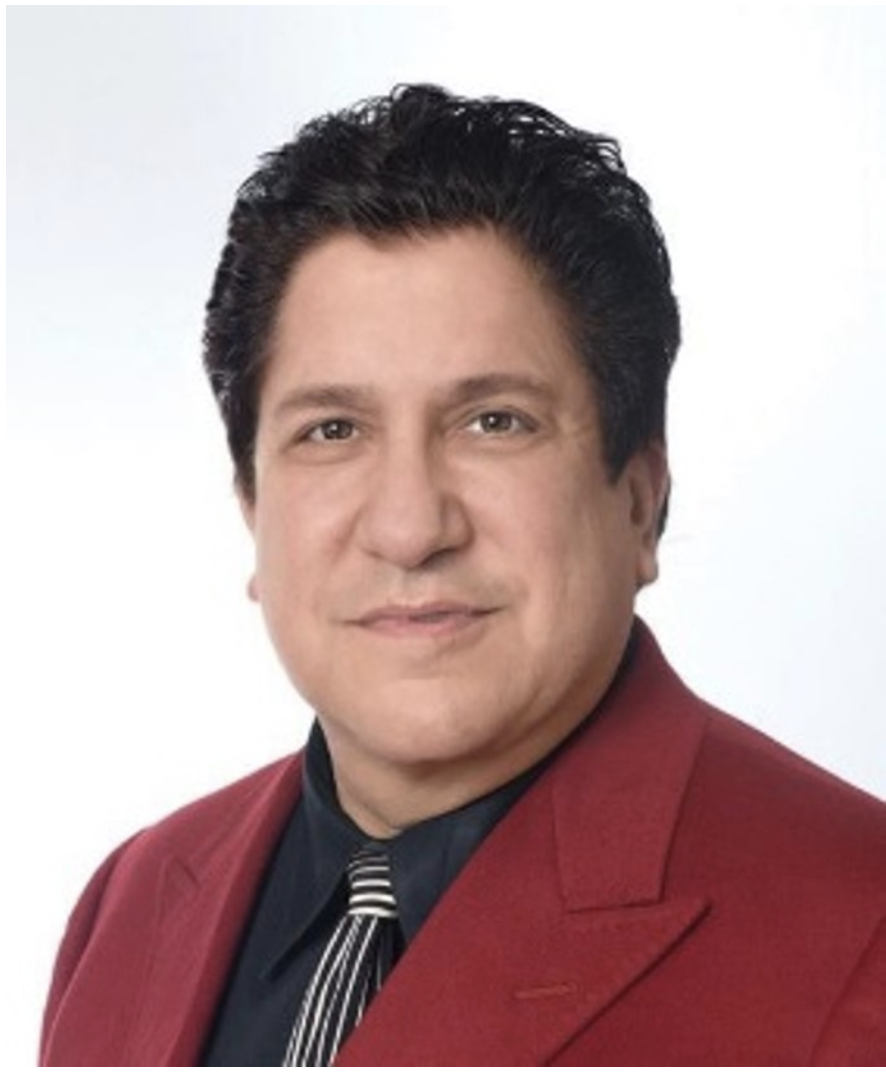 James Q. Del Rosso, DO, FAOCD, FAAD
James Q. Del Rosso, DO, FAOCD, FAAD
JDR Dermatology Research/Thomas Dermatology
Las Vegas, Nevada
Watch Video
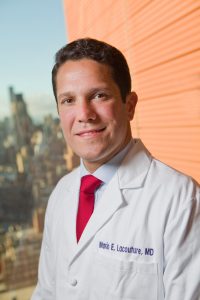
 Alice Ho, MD, MBA
Alice Ho, MD, MBA ![]()





 Sponsored by Sun Pharmaceuticals
Sponsored by Sun Pharmaceuticals


 San Antonio is home to Dr. Vivian Bucay and her husband, cardiologist Moises Bucay, and their three daughters. Recognized nationally and internationally for her expertise in her combination approach in minimally invasive facial rejuvenation, Dr. Bucay is considered to be one of the pre-eminent dermatologists in the country. Her credentials span a wide scope of biomedical research, patient care, and medical education.
San Antonio is home to Dr. Vivian Bucay and her husband, cardiologist Moises Bucay, and their three daughters. Recognized nationally and internationally for her expertise in her combination approach in minimally invasive facial rejuvenation, Dr. Bucay is considered to be one of the pre-eminent dermatologists in the country. Her credentials span a wide scope of biomedical research, patient care, and medical education. James Q. Del Rosso, DO, FAOCD, FAAD
James Q. Del Rosso, DO, FAOCD, FAAD